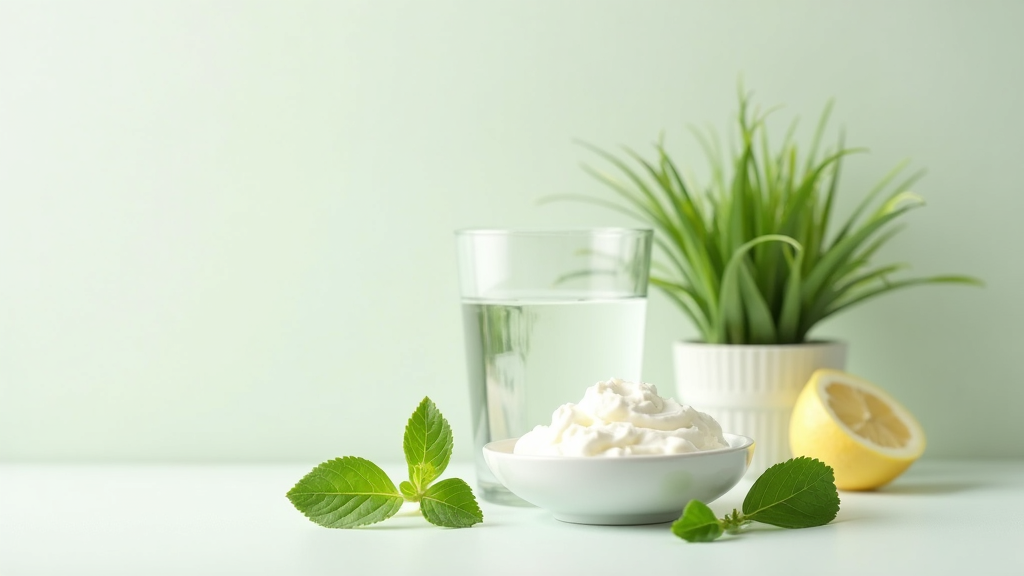A healthy vaginal pH plays an important role in overall comfort and protection from infections. Keeping this balance not only helps reduce irritation but can also prevent issues like yeast infections, bacterial vaginosis, and bothersome odors. There are plenty of easy and natural options for giving a boost to a balanced vaginal environment right at home. Here’s a guide to supporting a healthy vaginal pH naturally, including the best tips that have worked and can smooth the way for anyone who wants to take charge of their wellness.

Why Your Vaginal pH Is Really Important
The vagina is a self-regulating ecosystem. A slightly acidic pH, usually between 3.8 and 4.5, helps beneficial bacteria called lactobacilli thrive. These friendly bacteria produce lactic acid that keeps the environment just acidic enough to block harmful organisms from taking over. If this balance gets disturbed, it can lead to infections, dryness, discomfort, or odd odors.
Whenever your pH gets out of whack, you spot changes like itchiness, a stronger smell, or discharge that isn’t normal for you. Paying attention to these signs is important; they signal when your vaginal pH could use some support.
Common Reasons for Vaginal pH Imbalance
Many daily habits and life changes can mix up vaginal pH. Here’s are some those. These are also backed by research:
- Antibiotics: These drugs can knock out both harmful bacteria and the good lactobacilli, which sometimes lets yeast or less helpful bacteria multiply.
- Harsh Soaps, Douching, or Scented Products: I used to think extra cleaning helped, but even gentle-sounding products can strip away healthy bacteria or lead to irritation.
- Hormonal Shifts: Menstruation, pregnancy, menopause, or even changes caused by birth control can all influence vaginal acidity.
- Unprotected Sex: Semen is more alkaline, so it can temporarily raise pH after sex, creating conditions where less friendly bacteria may thrive.
- Stress: Chronic stress can mess with hormones and the immune system, sometimes affecting the vaginal microbiome too.
- Tight or Synthetic Clothing: Anything that traps heat and moisture (like noncotton underwear or sweaty gym clothes) can encourage unfriendly bacteria to grow.
How to Support Healthy Vaginal pH Naturally
Preventing and correcting a pH imbalance doesn’t require fancy treatments or drastic changes. Stick with these practical strategies for noticeable results:

Add Probiotics to Your Routine
Probiotics sit at the top of my list because they help beneficial lactobacilli come back. They keep things slightly acidic and restore balance, especially after antibiotics or when things are starting to feel off.
- Good Strains for Vaginal Health: Lactobacillus rhamnosus GR-1 and Lactobacillus reuteri RC-14 are the favorites in many women’s probiotic blends.
- How to Take Them: Use a daily probiotic supplement with at least one of these strains. Yogurt, kefir, and other fermented foods give a helpful probiotic boost too.
Try Moringa for Hormone and Immune Support
Moringa is a green superfood that supports hormone balance and immune health. Since hormone changes directly affect vaginal pH, using moringa (as capsules or powder in smoothies) gives an extra boost that is helpful, especially around your period or stressful times.
Gentle Hygiene Habits Make a Big Difference
- Only wash externally, using warm water or a super mild, fragrance-free cleanser if needed. Never inside (absolutely no douching!).
- Switching to breathable, 100% cotton underwear, sleeping without underwear sometimes, and changing out of damp clothes quickly all help to lower moisture problems.
- Skip anything scented—wipes, sprays, and pads as well.
Focus on a Diet That Supports Good Bacteria
- Prebiotic Foods: Garlic, onions, bananas, oats, leeks, and asparagus feed the good bacteria already in your system.
- Probiotic Foods: Yogurt (with live cultures), sauerkraut, kimchi, and kombucha can boost healthy bacteria.
- Limit Sugar and Processed Foods: Sweets and white carbs feed yeast, so try to enjoy them only as occasional treats.
- Stay Hydrated: Drinking enough water flushes out impurities and helps all mucosal tissue work smoothly, including vaginal tissue.
Each of these diet tweaks helps not only your vaginal health but also adds to your energy and better digestion overall.
Practical Tips for Everyday Prevention
- Use unscented, gentle laundry detergents, especially for underwear.
- Change pantyliners, pads, or tampons regularly.
- Consider using pH balanced lubes if sex feels dry or if you get irritated easily.
- Wipe front to back and wash hands before and after using the bathroom or inserting tampons.
Small daily actions like these really help create a comfortable and healthy vaginal environment.
Watch Out for Signs That Need a Doctor’s Visit
While many imbalances can be handled at home, it’s vital to be mindful of symptoms that don’t go away after a week or two of selfcare. These signs deserve a professional’s attention:
- Strong or foul-smelling odor that’s new to you
- Pain, burning, or itching that doesn’t get better
- Unusual discharge (like gray, green, or lumpy textures)
- Pain during sex or urination
- Recurring infections (yeast or bacterial)
Long-lasting problems or severe discomfort can be signs of something more serious; always check with a healthcare provider for these to play it safe.
Real-World Strategies for Keeping a Balanced Vaginal pH
- Taking a women’s probiotic, every morning should become a habit. It helps you bounce back much faster after antibiotics.
- Switching to fragrance-free soap and gentle, 100% cotton underwear will reduce irritation. It may take a few weeks to fully adjust, but your comfort level would be so much better.
- Use moringa powder in smoothies two or three times a week, especially during stressful periods.
- More live cultured yogurt and adding raw garlic to dinner will make a difference when you think an infection was brewing, often stopping problems from getting worse.
Questions You Might Have About Vaginal pH
How can I test my vaginal pH at home?
You can use vaginal pH test strips from the pharmacy. They’re easy to use and help you keep track of changes if you are trying new products, supplements, or recovering from antibiotics.
How fast can I expect results from natural remedies?
When you add probiotics and make a few daily changes, you usually feel improvement in a week or two. Sometimes even sooner, especially if you catch the signs early.
Are at home boric acid suppositories safe?
Some people find boric acid helpful for recurring infections, but you must always check in with a healthcare provider before using them to be sure it’s right and safe for your situation.
What if things don’t improve or symptoms get worse?
If symptoms stick around or get worse, it’s time to schedule a visit with a professional. Ongoing imbalance might need specific treatment or more testing.
The Bottom Line on Natural Vaginal pH Support
Keeping a healthy vaginal pH mainly comes down to supporting your body’s natural bacterial balance, listening to your own symptoms, and making smart daily choices. You will find good results by taking probiotics, eating a fiber rich diet, following good hygiene, and checking in with your provider about anything new or confusing. Even small steps can lead to real comfort and peace of mind across the cycles of life. All of that will adds up to feeling your best every single day.
Click to get my recommended Probiotic below and Moringa capsules, HERE
- Garden of Life Dr. Formulated Women’s Probiotic (contains L. reuteri & L. fermentum)
- Culturelle Women’s Healthy Balance (features L. rhamnosus GR-1)
“Here is a little transparency: Our website contains affiliate links. This means if you make a purchase, we may receive a small commission. Don’t worry, there is no extra cost to you. It’s a simple way you can support our mission to bring you quality content”
